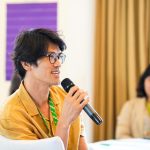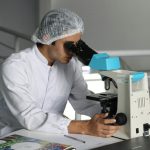
Building the Future of Bioethics in Southeast Asia: The Vision, Mission, and Values of the Southeast Asia Bioethics Network
November 14, 2023
Public Forum on Ethics and AI Health Research
December 18, 2023
Building the Future of Bioethics in Southeast Asia: The Vision, Mission, and Values of the Southeast Asia Bioethics Network
November 14, 2023
Public Forum on Ethics and AI Health Research
December 18, 2023Exploring Ethical Dimensions of Migration Health: A Workshop Overview


The workshop began with sessions dissecting fundamental aspects of migration health and its ethical considerations, emphasising the significance of taxonomy and terminology in understanding its complexities. Insights gleaned from a scoping review shed light on ethical dilemmas and offered actionable recommendations to address vulnerabilities among migrant populations effectively. Throughout the day, experts led discussions emphasising the ethical complexities of migration and advocating for collective values and policy responses. These sessions laid a foundation for addressing migration health through a bioethics lens, leading to in-depth discussions on providing healthcare services and conducting ethical research. Under the theme of providing healthcare services, sessions spotlighted challenges and responsive actions in delivering healthcare to migrant populations, particularly along the Thai-Myanmar border. Discussions highlighted significant obstacles such as accessibility, resource allocation and cultural barriers, underlining the complexities of healthcare delivery in areas with high migrant populations. Exploration of sexual and reproductive health services for young women within migrant communities revealed specific healthcare needs, emphasising the importance of targeted interventions. Discussions also underscored the necessity of creating safe and welcoming spaces within healthcare settings to address the needs of marginalised groups within migrant communities. Ethical dimensions of conducting research with migrant populations were thoroughly examined, emphasising community engagement and ethical considerations. The second day of the workshop delved deeper into access to healthcare, offering insights into various challenges faced by refugees and migrants, including the political dynamics surrounding the Rohingya crisis and the impact of the COVID-19 pandemic.

Participants gained valuable insights into conceptual frameworks for addressing ethical considerations in migrant worker health communication interventions. The workshop concluded with a panel discussion on common challenges in researching migrant populations, stressing the importance of collaborative efforts, interdisciplinary approaches and community engagement to foster sustainable solutions. Overall, the Southeast Asia Bioethics Network Workshop provided a platform for robust discussions and knowledge exchange, offering valuable guidelines for promoting ethical practices and ensuring equitable access to healthcare in the region.
